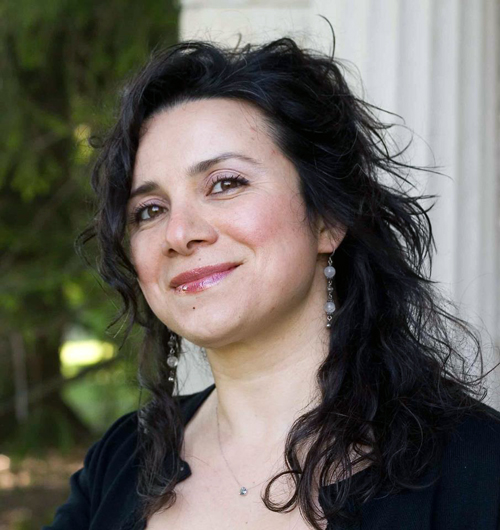
Immigrants to Canada often find the adjustment a tough one: they may struggle to find work and to make connections in their new communities. Meral Mert, a fourth-year family relations and adult development student, understands those challenges well: she was in the same place herself when she came to Canada from Turkey nearly 10 years ago.
“After a couple of months, when I still couldn’t find a job, I started to sell Turkish pastries at the Guelph Farmers’ Market,” she says. They were a hit, and nine years later, she’s still working 35 hours a week or more to prepare the treats for sale every Saturday morning. “I have a huge passion for baking and I love meeting people – you meet so many people at the farmers’ market.”
Mert’s practicum co-ordinator, Jennifer Pepper, knew the student’s story and recommended she take a placement with Immigrant Services to spearhead a new project called “Migrating Chefs.” As Mert explains, “the purpose of the project is to help newcomers to Canada to develop small-scale catering businesses that will help them integrate into Canadian society and also generate some income.” Another goal is to use local suppliers as much as possible.
Although some of the newcomers involved have professional cooking experience or training, others are – like Mert – enthusiastic home cooks. Mert says the “family cooks,” as she calls them, are often very skilled at making foods that reflect the cultural traditions of their home country.
As this is a new venture, Mert began with a market analysis to determine the availability of potential places to sell food items created by the Migrating Chefs. She contacted local schools, restaurants, grocery stores and other vendors to see if they would be interested in selling these products and found that there was considerable interest.
“There does seem to be a good potential market,” she says. She notes that sometimes large catering businesses are often asked to provide cultural foods for particular events, which could be another opportunity for the Migrating Chefs. And of course, some may also consider selling their food items at farmers’ markets, as Mert did.
The information she gathered was shared with Immigration Services and a group of immigrants interested in taking part. Immigrant Services hopes to provide the chefs with commercial kitchen facilities in the future to prepare the food plus appropriate training to ensure that all food safety requirements are met.
“This will bring people together – part of our goal is to have it be a social enterprise,” says Mert. “The chefs will work together and will support each other.”
Currently, about 10 people are starting with the project from a variety of countries, including Afghanistan and Iran. “It takes a lot of commitment to really get this going, but this project can really open doors for newcomers,” she says.
Mert expects to graduate at the end of next semester, after completing two more courses, and hopes to be admitted to the master’s program in couple and family therapy. She will continue selling her delicious baked treats at the farmer’s market as well.
This practicum and the project she launched have been very meaningful to her, she says, because she is helping people who are dealing with the same issues she once faced. “I have been through these tough times myself,” she says, adding that she is very appreciative that Pepper helped her find this placement. She has also benefited from the support of Immigrant Services executive director Royya Rabbani and supervisor Karen Kew.
“It’s increased my awareness of the challenges we face in a diverse culture. We all have our own identities, religious views, and cultural traditions. Food can be a great way to share that and to find common ground,” she says.